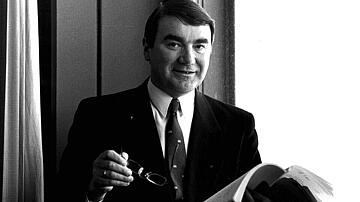News
Obituary for Gerhard Fels

Gerhard Fels followed his mentor and Kiel Institute Director Herbert Giersch from Saarbrücken to Kiel in 1969 and, in 1971, was entrusted by Giersch with the leadership of the central Research Department I. In 1976, he was appointed Deputy to Herbert Giersch. Gerhard Fels held both positions until he moved to Cologne in 1983 to become Director of the German Economic Institute. Already in the 1960s, he worked as a research associate for the German Council of Economic Experts and was appointed to the Council in 1976, serving until 1982. As an adjunct professor, Gerhard Fels taught at Kiel University (Christian-Albrechts-Universität zu Kiel) from 1974 to 1985.
Gerhard Fels’ time at the Kiel Institute was marked by an extraordinarily productive period of scientific and economic policy work that received broad recognition both nationally and internationally. The Collaborative Research Center 86 "World Economy and International Economic Relations," which shaped the Kiel Institute’s work for more than a decade—and, thanks in part to many international researchers in Fels’ department, reached the standards of global research—owed much of its dynamism to his efforts. The focus of his research was on analyzing the structural transformation of advanced economies brought about by international trade and technological progress, including Germany, and the consequences for shaping a sustainable economic policy. His much-noted studies on protectionism and the sectoral structure of the German economy, in which he played a key role, clearly demonstrated the need to respond to competitive pressures from emerging markets by opening markets and implementing structural adjustments, rather than resorting to protectionism. He never shied away from controversy with affected industry representatives and policymakers. The fact that German economic policy recognized the quality of his analyses and recommendations late, but not too late, is evident from the continued importance of structural reporting as a cornerstone of research and policy advice at the Kiel Institute long after his move to Cologne. Even after 1983, Gerhard Fels remained actively involved and promoted cooperation with the Kiel Institute from Cologne. International recognition for his work at the Kiel Institute was further reflected in his service as the first German representative to the UN “Committee for Development Planning” from 1978 to 1982.
Many staff members at the Kiel Institute owe Gerhard Fels support and advancement in their scientific, economic policy, and professional careers. He placed great importance on co-authoring publications with younger colleagues—something far from common at the time—as well as on fostering an inspiring and collegial work environment, including shared leisure activities.
Our deepest sympathy goes out to his family and friends for the loss of a great personality.
The Kiel Institute will cherish the memory of Gerhard Fels and honor his life’s work with deep gratitude.
On behalf of
Moritz Schularick, Rolf J. Langhammer and all staff members of the Kiel Institute for the World Economy.
